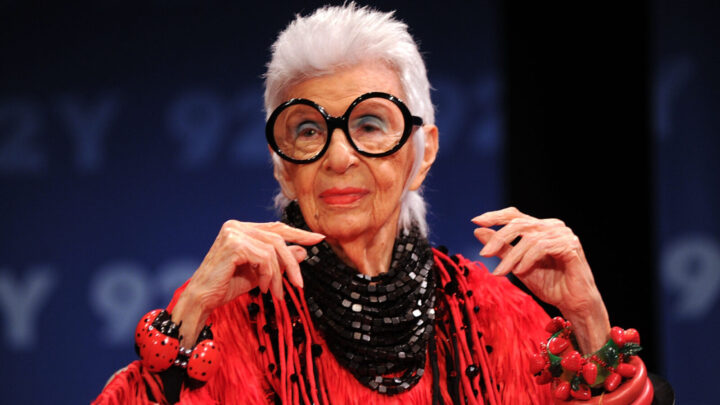
When I was in 7th grade and it was pouring rain, my mother would pick me up from school. She could never spot me in the clusters of girls because we all wore the same beige raincoats with the same round collars.
We also refused to carry umbrellas because it wasn’t cool. We were monochromatic and wet, standing outside our school, because we were afraid to be otherwise.
Times have changed. The older we have become, the more we’ve differentiated ourselves from others. Some of us have become notably eccentric. And it couldn’t come too soon.
Dr Robert N. Butler, founder of the US National Institute on Aging, once said almost gleefully, that kids are much more alike than 80-year-olds. He meant that, in addition to physical differences among ageing populations, older people have thrown off the constraints of youthful peer pressure and allowed the ageing process to turn them into the individuals they were meant to be.
It’s freeing. We are finally coming into our own. Except for one, nagging admonition. And that is the idea that we are all supposed to age gracefully.
What does it mean when people tell us, and we tell each other, to “age gracefully”? It may mean a return to beige raincoats because what our culture wants us to do is to conform to an image of what an older person should be. That is, someone who doesn’t complain (even though younger people make careers doing it on social media), someone who doesn’t demand attention (see social media reference), someone who fades away into that gentle goodnight.
We’re encouraged to be supportive and loving of others, but not put ourselves first. We are applauded when we smile and pretend things are just fine. We get eye rolls when we dress flamboyantly, make unfiltered comments or delve into our eccentricities.
You don’t ask a child to be young gracefully. But it’s as if the act of growing old might offend someone, so we have to be careful and graceful when we do it. At the very moment we feel liberated to be ourselves, we’re asked to tone it down. Where did this joy-snatching concept of ageing gracefully come from?
It may have roots in our Victorian past. The reign of Queen Victoria (from the mid-1800s to the early 1900s) influenced not only how we viewed the individual in society but how we judged the elderly. Victorians believed that if you kept your nose clean, you would live to a very old age, die of natural causes and go straight to heaven.
Where’s the fun in that? Plenty of righteous people throughout history didn’t live all that long (Joan of Arc comes to mind), while people who have lived outrageous, eccentric lives lasted well into old age.
Sculptor Louise Nevelson pursued acting and singing lessons for years, dressed in colourful textiles and head-dresses, and applied mink eyelashes daily until she died at 88 in 1988. Author Tom Wolfe, outspoken chronicler of the hip, wore straw hats and pale seersucker suits in winter, right up to his death at 88 in 2018.
Fashion icon Iris Apfel is still going strong at 99, wielding huge black-rimmed glasses and masses of jewellery. She even has her own Iris Barbie Doll! Then, of course, there’s the loud and proud queen of pop, Madonna, who at 62 refuses to dress ‘age appropriately’. These people don’t (or didn’t) go quietly.
Because older people have been here longer than anybody else, we should be making our own rules. If ageing conventionally isn’t in your plans, people will get used to it. This is your time to kick up your heels – even if you’re not graceful when you do!